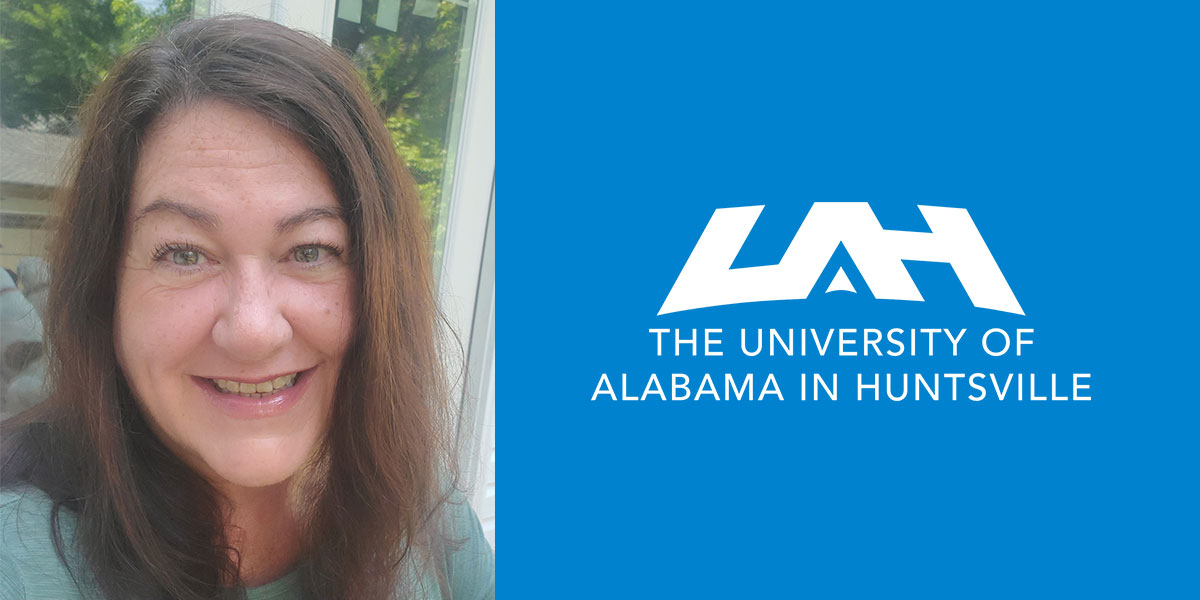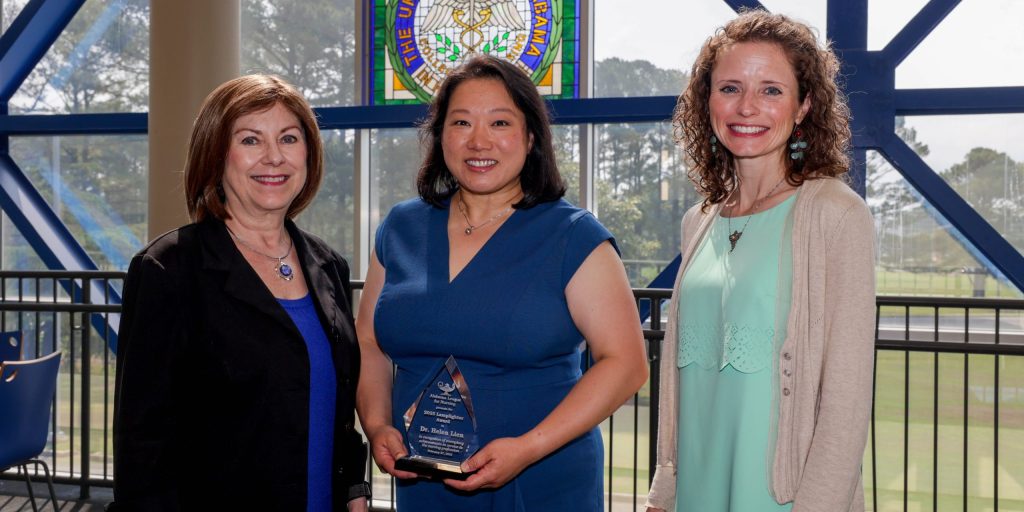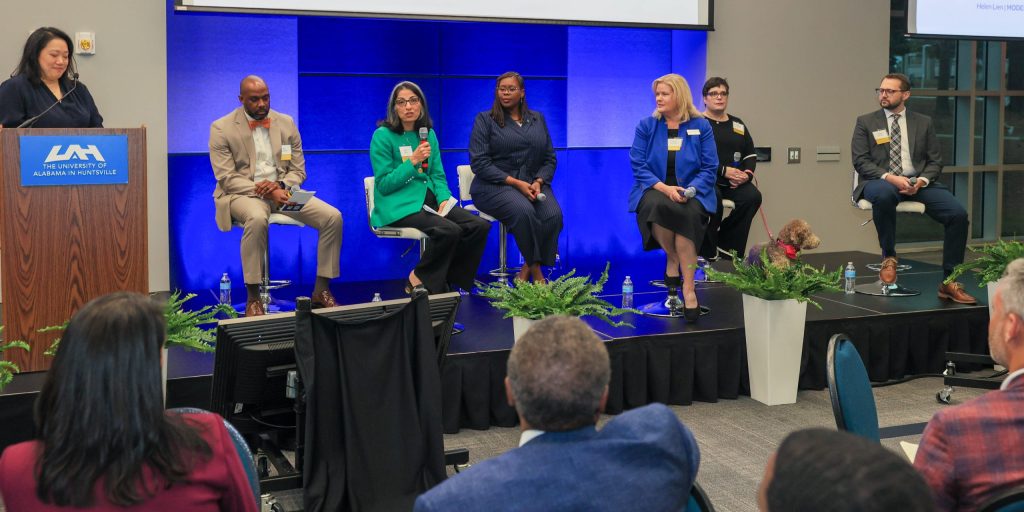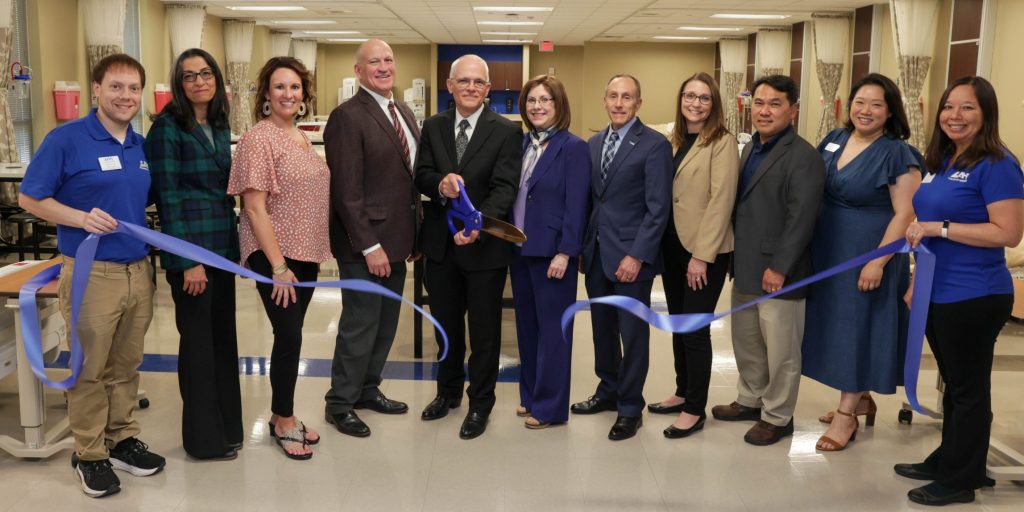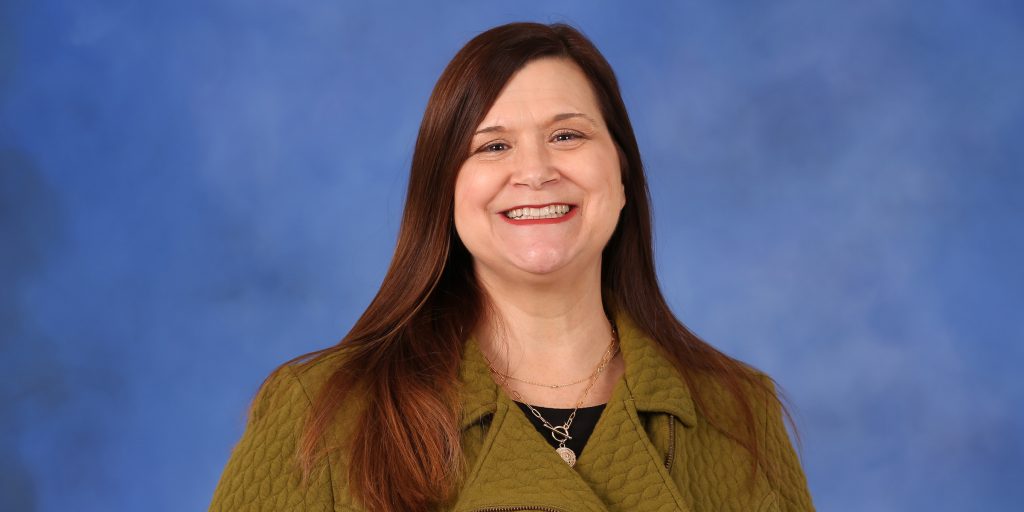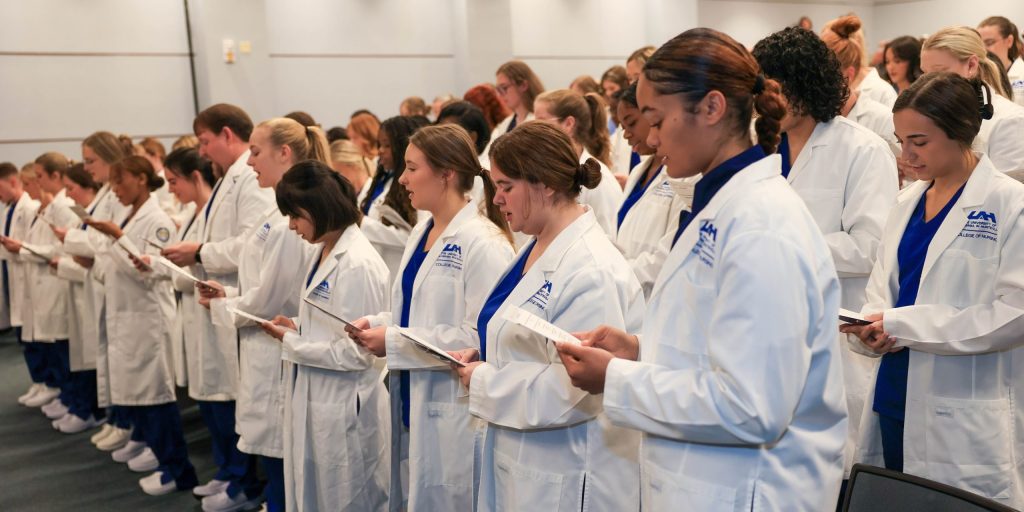HUNTSVILLE – Nurses know the bedside stories. They’ve experienced connections with patients that inspire, interactions that satisfy or frustrate, even situations that horrify.
Dr. Laura Hart, executive director of the Alabama State Nurses Association, wants more people to hear the range of nurses’ stories and to use their insights to create a better healthcare system for everyone.
Educating healthcare administrators, lawmakers and the general public about the needs of nurses is essential, said Hart, a double graduate of the University of Alabama in Huntsville.
She worked with Dr. Karen Frith, dean of the College of Nursing, and Dr. Azita Amiri, associate professor in the College of Nursing, to develop a mini-proposal with evidence-based solutions to improve working conditions for nurses.
“We have a seat on the Public Health Committee, but we don’t have any input,” she said. “It’s a silent seat. We need a seat where we can give the point of view of a nurse.
“I’m in the process of trying to build some relationships that can get us at the table.”
That’s why Hart is asking nurses to share their stories with ASNA for publication on its social media sites and website. All stories remain anonymous.
“We don’t give their name,” she said. “If they mention the hospital’s name, we blur that out, too. We want to know what is happening, what nurses are saying. Tell us about your best day ever as a nurse. Tell us about your worst day. Tell us about what plagued you on your last shift.
“We want to know your story because, if we know your story, we can help you better. We can share your story with people who can make changes.”
After 30 years as a registered nurse and family nurse practitioner, Hart (B.S.N. 1993, D.N.P. 2020) became the executive director of the nurses association in September 2022.
“I spent the majority of my life in the emergency department as a nurse practitioner,” she said. “I worked there all the way through COVID. Managed not to get COVID until the Omicron strain.”
Also during COVID, Hart received her Doctor of Nursing Practice degree from UAH. She’s a strong supporter of her alma mater, her profession and her fellow nurses.
“I think UAH is an awesome school with a great nursing program,” she said. “I can’t say enough good things about the professors I encountered there and who worked with me. They’re up to date on technology. They have some great creative minds that can help the students see beyond themselves.
“Tuition-wise, it’s a great value for the education.”
To someone considering a nursing career, Hart said, “You really can make a difference.”
That impact may start with an individual patient, but it quickly spreads.
“There’s a book they had us read in the D.N.P. program that I have since made a part of our Leadership Academy required reading: ‘From Silence to Voice: What Nurses Know and Need to Communicate to the Public’,” she said. “It highlights how your day-to-day interactions with people can be opportunities for you to improve the health of your community, of that individual, and of the family.”
When ASNA advocates for nurses, they’re advocating for everyone, Hart points out.
“The health of the nurse ultimately affects the health of the public,” she said. “Our end goal is the public and the health of the citizens, but we accomplish that through helping the nurse.”
Long before she applied to lead ASNA, Hart was an active member.
“I’ve always had a passion for helping nurses,” she said. “Because nurses are the largest group in the healthcare system, but they don’t apply their influence very well. In my dream world, we would all be members of ASNA and would speak with one collective voice that this is what nurses need.
“It would be ideal to have the force of that many nurses behind what you’re saying.”
Hart is reaching for that dream by working to grow ASNA so it can better address modern nursing challenges. She aims to increase and diversify membership and amplify members’ voices.
“We have a lot of members who have been members a long time,” she said. “They’re active members, they’re good members, and they do great things. But we need to pull in some of the younger people to help us round out our perspective on what nurses need. We have a lot of educators and a lot of nurse leaders in our membership.
“We need more people who still work at the bedside.”


